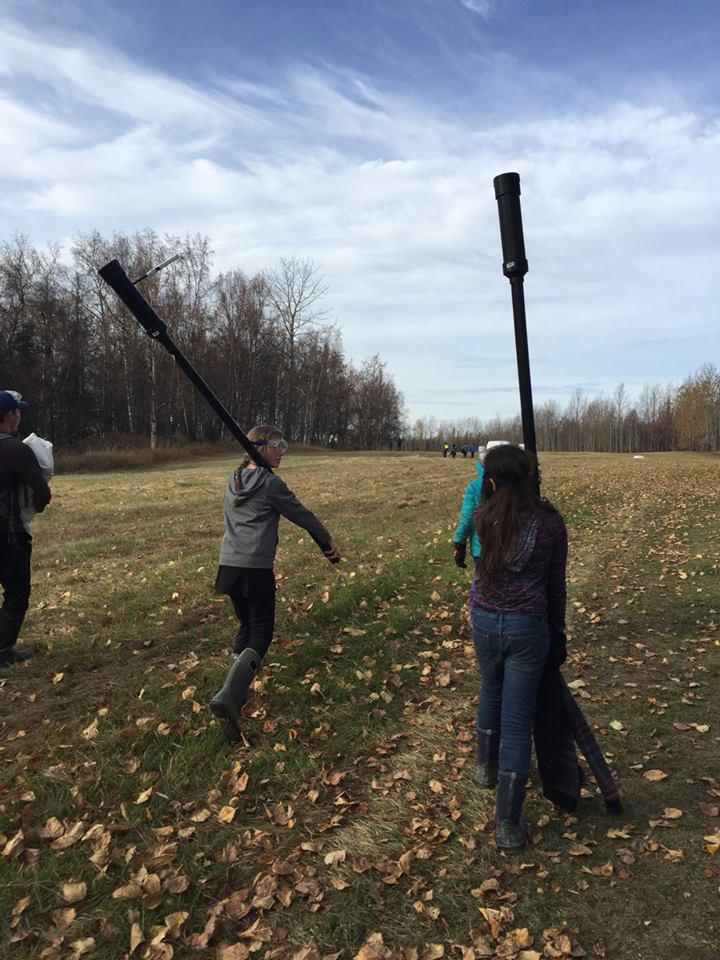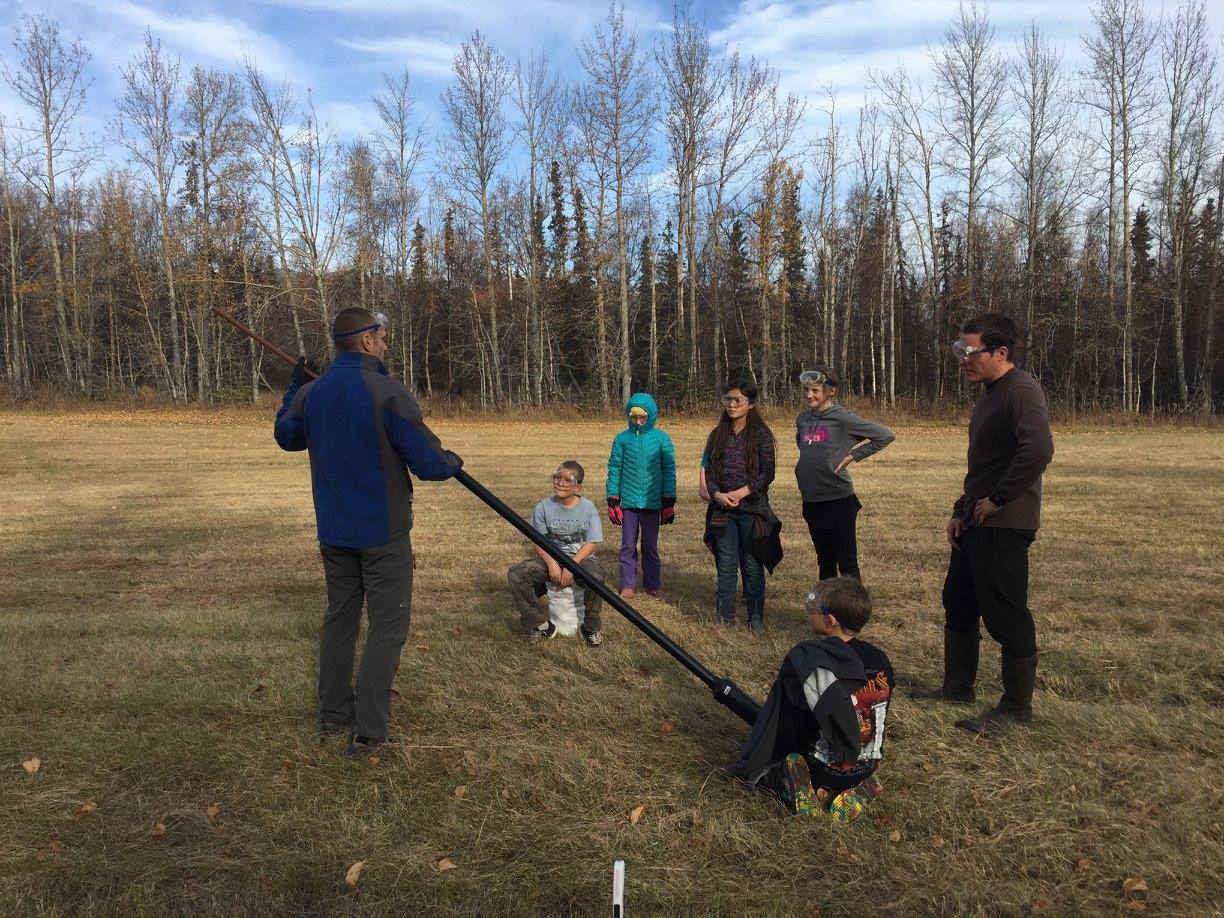
Photos Courtesy of Megan Rock
by Christopher Eversman
M.S in Outdoor & Environmental Education
“Do you think it’s dangerous?” the F.I.E.L.D. School director asked across a table stacked with plastic pipes, cement, and kitchen lighters.
“No way,” I said and smiled reassuringly… or as reassuringly as someone could who was days away from trusting a dozen child engineers to build a potato cannon. Trust that could literally blow up in my face. “We’re just igniting hairspray.”
Infamous last words? I hoped not.
F.I.E.L.D. School (Fully Integrated Environmental Learning and Discovery School) is a child-oriented, outdoor educational program at the Spring Creek Farm on APU’s Kellogg Campus in Palmer, AK.
As Master of Science degree-seeking students in the Outdoor and Environmental Education (OEE) program at APU, a fellow classmate and I taught a dozen ten- and eleven-year-olds who attended F.I.E.L.D. School once weekly. We challenged our kids, but our class motto was, “Difficult but not dangerous.”
A potato cannon was a tool to teach physics, chemistry, mathematics, teamwork, and safety. It was a hook to get kids excited about science, but was it dangerous? I watched countless engineering students at my previous college fire potato cannons every spring and make it look like child’s play. But they were not actually children.
I hopped on my computer.
In two clicks I found a ten-minute video titled, “Potato Cannon Fails.” Five minutes later, I felt uneasy. Another five minutes and I was checking the terms of my health insurance. It was definitely not my favorite online video. I took a deep breath and watched it again with a more critical eye. The mistakes were obvious: improper materials, bystanders in the wrong places, no safety glasses. The people in the video were unprepared. Our kids were prepared. My co-teacher and I had already taught them how to fire, where to stand, and what to wear. Even before building the cannon, the kids knew it inside and out. On the long-anticipated day, the kids drilled holes and cemented together pipes. They worked on a learning project, and so did I.
The OEE program emphasizes project-based learning, which, as I learned in Environmental Literacy class, traces back to John Dewey’s “learning by doing” educational approach of the late-1800s. Every OEE student gains invaluable experience by teaching a term at F.I.E.L.D. School, developing curriculum, planning lessons, and managing classrooms.
When the big moment finally arrived, the kids trembled with excitement. My co-teacher lit the cannon’s igniter, and with a satisfying “WHOOMP!” a potato arced through the sky. To the kids it was a starter’s pistol, as they all ran after the potato, straining to be the first to mark its landing place with a triumphant, “Here it is!” I trotted behind with the forgotten tape measure after bumping fists with my co-teacher. The kids accomplished their goal, and we were well on our way to accomplishing ours.

Photos Courtesy of Megan Rock
